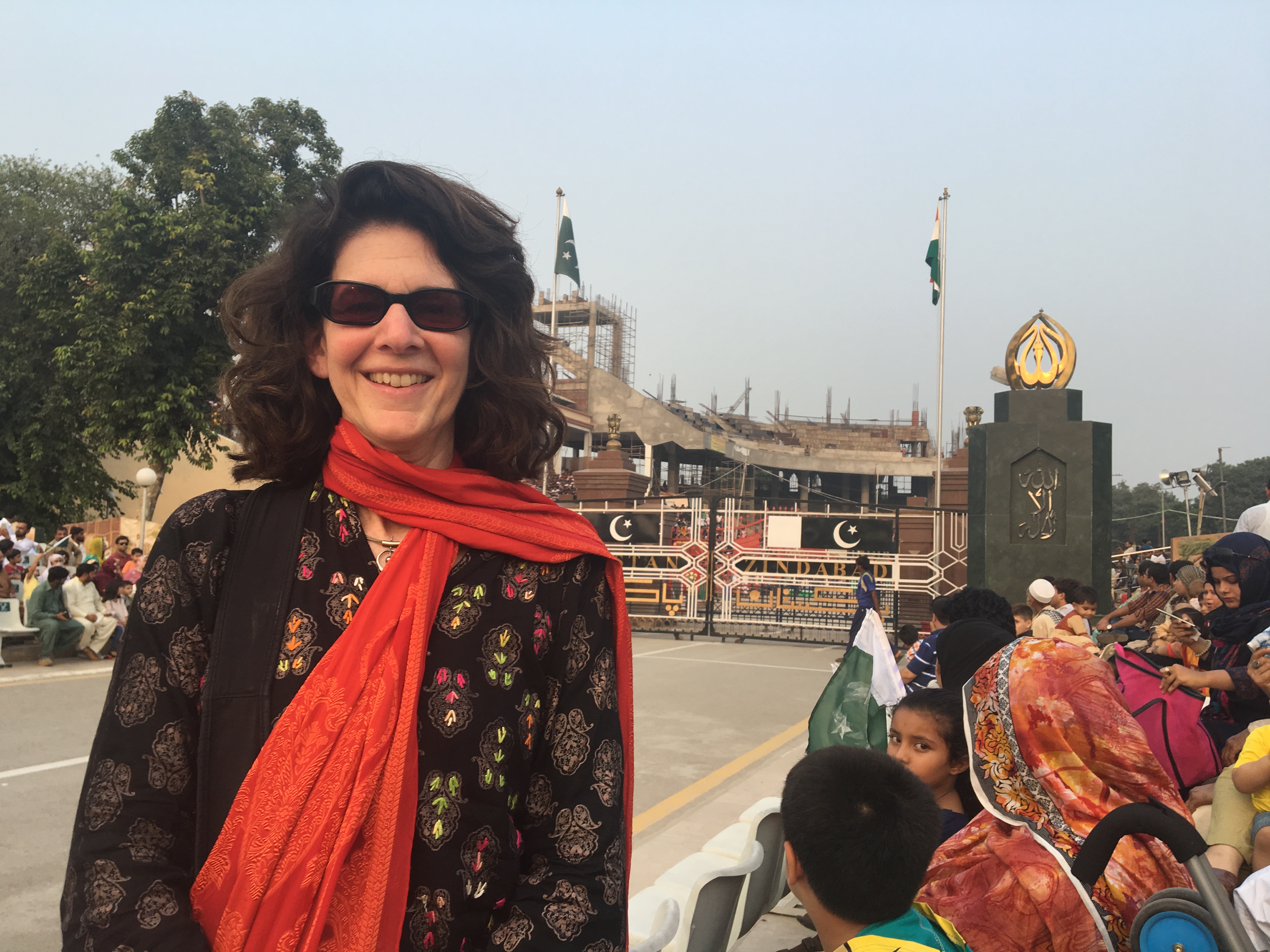How do you break down cultural stereotypes? For two groups in the U.S. and Pakistan, it was through storytelling.
An Arizona State University delegation recently returned from Pakistan as part of a three-year exchange program to bridge cultures through American literature and empower Pakistani women to become leaders and agents of change.
The venture brought together faculty and students from ASU's Center for the Study of Religion Conflict and the Department of English and Kinnaird College — a 100-year-old women’s college in Lahore, Pakistan — to collaborate on workshops, courses and dialogues about literature on both sides of the globe.
“Our main goal was to help Kinnaird develop their faculty capability in research and teaching of American literature. American cultural production has become a powerful force in the world, but in turn it is also influenced by the diverse peoples and cultures that make up the U.S.,” said project coordinator Carolyn ForbesCaroyln Forbes is the assistant director of the Center for the Study of Religion and Conflict.. “Seeing those interactions and interrelations was an important element of this project.”
According to Forbes, one of the longest-lasting impact of the project will be the breakdown of cultural stereotypes.
Just as some Americans may view Pakistan as a dangerous place based on misunderstandings of what life is like in the country, America has similarly cultivated a stereotype for itself abroad.
“Our media produces images about Pakistan that may not comport to most of the people of Pakistan. And (the) media produces stereotypes of Americans, like how it may seem from watching American TV that everybody is divorced in America,” said Forbes.
Project coordinator Carolyn Forbes in Pakistan.
In 2013, ASU applied for a nearly $1 million grant from the U.S. Department of State through its Pakistan embassy. Now the project, titled “Globalizing Research and Teaching of American Literature: A University Partnership Between ASU and Kinnaird College (Lahore),” is nearing completion, and both universities have benefited from the collaboration.
Saifiya Fawad, a visiting scholar and lecturer from Kinnaird College, joined the venture to broaden the scope of her research, aiming to attain new strategies in approaching comparative literature.
Thanks to the program, Fawad will be producing a paper that she’ll present at a conference this month, all the while fostering new connections she made along the way.
“I forged friendships with a lot of people involved in the project and I realized that it is not your nationality but your personality which ties you to people,” Fawad said. “The bonds that I formed with these people cannot be easily broken.”
While visiting the U.S., Fawad and Zahra Hanif, a visiting scholar and lecturer at the Kinnaird College Department of English Language and Literature, participated in ASU English associate professor — and project director/principal investigator — Claudia Sadowski-Smith’s class titled “Global American Literary Studies, Contemporary US Literature,” which taught about the emergence of U.S. American literary studies as a means to explore U.S. national identity.
“Storytelling, particularly in fictional form, can connect readers to others across different histories, cultures and religions,” Sadowski-Smith said. “Readers can learn about the histories, cultures, identities and beliefs of others in a way that draws them into their experiences and stories, rather than just read coverage of other groups in which they are often dehumanized.”
“For visiting scholars to learn about the U.S. and also read immigrant writing from other parts of the Americas is a completely new experience. They have stereotypical ideas about the U.S. before they come here and know little about our internal diversity — and the histories thereof — or the U.S. relationship to other parts of the Americas and the rest of the world,” Sadowski-Smith added.
Hanif also acknowledged the juxtaposed importance of global research.
“The two cultures, the East and the West, are quite different from each other,” Hanif said.
However, Hanif said she received immense hospitality from not only the people who worked on the project but also from classmates and others they met along the way.
“Moreover, since our point of contact was literature, it eliminates all differences and unites us as people belonging to the human race,” Hanif said. “Literature is the unifying religion of humanity.”
The project team includes Claudia Sadowski-Smith, principal investigator and project director, associate professor, Department of English, ASU; Yasmin Saikia, co-principal investigator, Hardt-Nickachos Chair in Peace Studies and professor of history, ASU; Neal Lester, co-principal investigator, Foundation Professor of English and director, Project Humanities, ASU; Carolyn Forbes, project coordinator, assistant director, Center for the Study of Religion and Conflict. Zahra Hanif and Saifiya Fawad, both lecturers in the Department of English at Kinnaird College for Women, participated in the visiting scholars-in-residence program at ASU in Spring 2016 and are returning to the U.S. to give papers at the SAMLA conference this fall. Lee Bebout and Edward Mallot, both associate professors of English, recently delivered a weeklong workshop at Kinnaird on the intersection of U.S. and post-colonial literatures as part of the project.The project is supporting by a grant from the U.S. Department of State’s Embassy in Islamabad, Pakistan.
More Arts, humanities and education

ASU instructor’s debut novel becomes a bestseller on Amazon
Desiree Prieto Groft’s newly released novel "Girl, Unemployed" focuses on women and work — a subject close to Groft’s heart.“I have always been obsessed with women and jobs,” said Groft, a writing…

‘It all started at ASU’: Football player, theater alum makes the big screen
For filmmaker Ben Fritz, everything is about connection, relationships and overcoming expectations. “It’s about seeing people beyond how they see themselves,” he said. “When you create a space…

Lost languages mean lost cultures
By Alyssa Arns and Kristen LaRue-SandlerWhat if your language disappeared?Over the span of human existence, civilizations have come and gone. For many, the absence of written records means we know…



